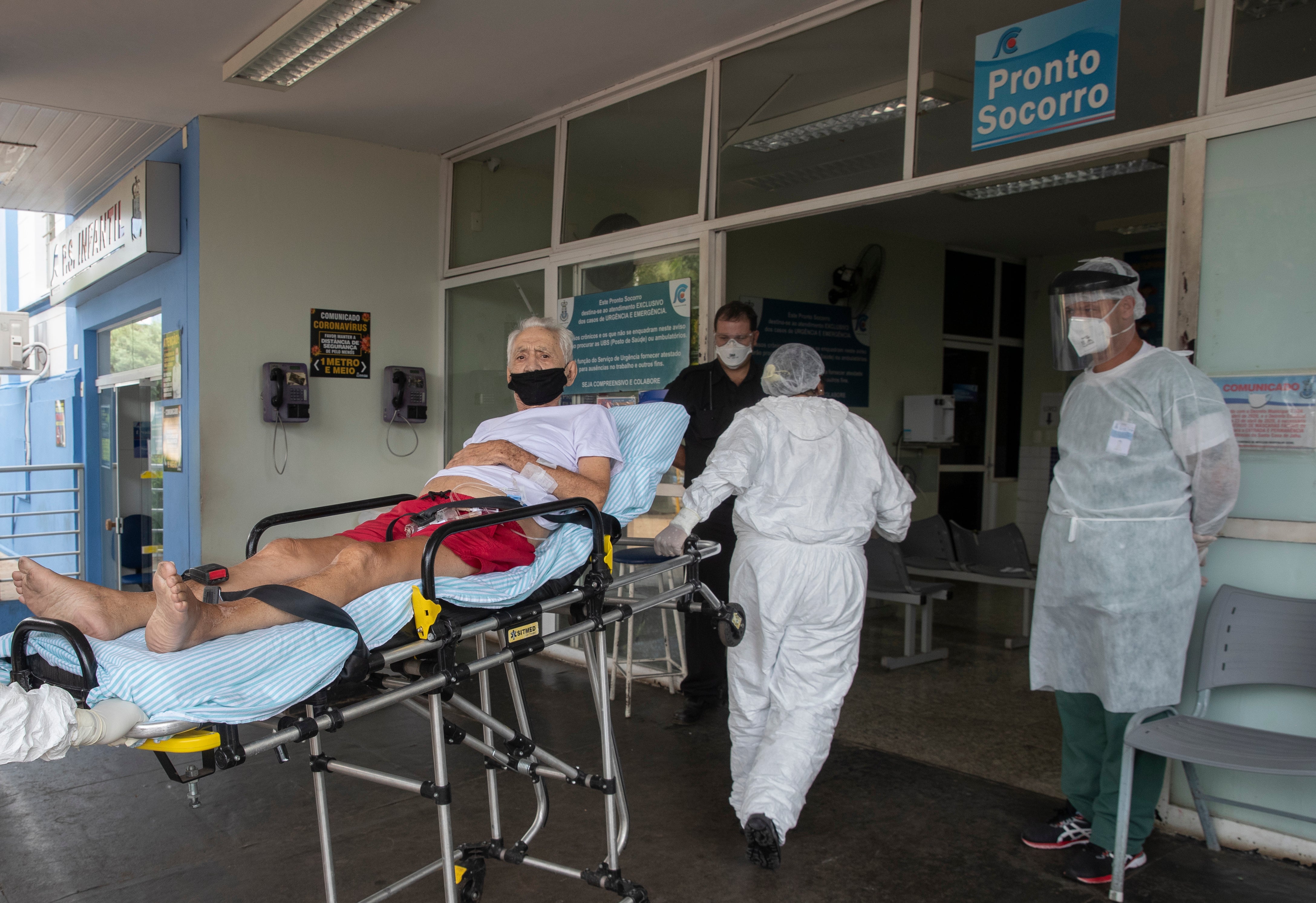Second Brazil wave strains hospitals in Sao Paulo's interior
Just as Brazil has a glimpse of hope with the start of vaccination, it faces a dizzying second COVID-19 wave that is straining facilities ability to treat patients

Your support helps us to tell the story
From reproductive rights to climate change to Big Tech, The Independent is on the ground when the story is developing. Whether it's investigating the financials of Elon Musk's pro-Trump PAC or producing our latest documentary, 'The A Word', which shines a light on the American women fighting for reproductive rights, we know how important it is to parse out the facts from the messaging.
At such a critical moment in US history, we need reporters on the ground. Your donation allows us to keep sending journalists to speak to both sides of the story.
The Independent is trusted by Americans across the entire political spectrum. And unlike many other quality news outlets, we choose not to lock Americans out of our reporting and analysis with paywalls. We believe quality journalism should be available to everyone, paid for by those who can afford it.
Your support makes all the difference.Rodinei Silva made two trips this week to the Santa Casa de Jau hospital in the interior of Brazil's Sao Paulo state. First, he brought his wife who was suffering COVID-19 symptoms including trouble breathing. She tested positive, but was sent home with medication because space was scarce.
“There were no beds on Tuesday,” Silva, 65, said, adding that his wife's condition is deteriorating at home. He returned to the hospital on Thursday because he was showing symptoms.
Each day, several patients like Silva turn up at the hospital in the municipality of about 152,000 people, seeking treatment. But the facility also admits COVID-19 patients from 11 surrounding cities, and it reached capacity on Jan. 18.
Just as Brazil has a glimmer of hope with the start of vaccination, it is facing a dizzying second COVID-19 wave that is straining facilities' ability to attend to patients. Intensive-care units in public hospitals have been maxed out in several states and municipalities across the country, including two state capitals in the remote Amazon and even some cities like Jau in Sao Paulo, the nation's wealthiest state.
“This is perhaps the most difficult moment of the entire pandemic,” said Leonardo de Avila Lins, who leads the hospital's intensive-care ward.
Sao Paulo has seen a daily average of some 11,000 cases over the past two weeks, more than were confirmed during the state's 2020 peak, according to official data. The 14-day average of some 230 daily deaths is a few dozen shy of the toll reached last year.
At Santa Casa de Jau, arriving patients are either placed in a temporary unit, created in mid-January when intensive-care space ran out, or sent to other hospitals. Pressure is increasing by the day, said Scila Carretero, the hospital’s administrative manager.
“Our concern is not being able to transfer these patients, and not being able to absorb them into our ICU," Carretero said, adding that transfers are challenging and they've managed only two since Jan. 18. That means for the most part only accepting new patients once others are discharged or die.
As of Thursday, 20 patients waited in the makeshift COVID-19 unit for a spot to open in the ICU. In the span of less than four hours, Associated Press journalists saw five people with virus symptoms arrive.
Health experts are sounding the alarm, as other hospitals treating COVID-19 patients in Sao Paulo have also run out of room.
“This is not an isolated case,” said Brigida Kemp, a member of the BR COVID-19 Observatory, which includes dozens of health experts and professors. “We are observing a recurrence of the pandemic in various places."
Overall, intensive-care units in Sao Paulo state have an occupation rate of 70%, according to state data. But while the speed of the spread since November has been comparable to the first wave, the virus is proliferating faster now in the interior than the capital, according to Dr. Paulo Menezes, who leads the state’s Coronavirus Contingency Center.
At Santa Casa de Jau, health workers say they are desperately searching for places to squeeze new patients in.
“We're all tired, because we have been dealing with this virus for a year,” Carretero said. “Now that it is coming back, with all this intensity, this volume of patients, we're exhausted.”
___ AP writer Jeantet reported from Rio de Janeiro